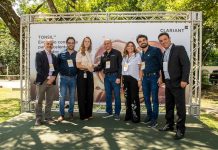Researchers at Washington State University have made key progress in economically converting plant materials to fuels by keeping iron from rusting. Led by Yong Wang, Voiland Distinguished Professor in the Gene and Linda Voiland School of Chemical Engineering and Bioengineering, and Shuai Wang from the State Key Laboratory for Physical Chemistry of Solid Surfaces at Xiamen University, the paper has been published in ACS Catalysis.
Researchers have been trying to overcome a challenge in using plant-based feedstocks for fuel i.e removing oxygen before they can be used. Iron-based catalysts show great promise for being able to remove oxygen, but because the plant materials also contain oxygen, the iron rusts, during the reaction, and then the reaction stops working. In another recently published paper in Chemical Science led by Yong Wang and Junming Sun, a research assistant professor in the Gene and Linda Voiland School of Chemical Engineering and Bioengineering, the researchers discovered a durable iron-based catalyst with a thin carbon graphene layer around it. The graphene layer protected the iron while cesium ions allowed the researchers to tailor its electronic properties for the desired reaction.
“By protecting iron and tuning its properties, these works provide the scientific basis for using earth-abundant and cost-effective iron as catalysts for biomass conversion,” Sun said. “We are trying to make the conversion as economically as possible. The key is trying to find robust catalysts based on low-cost, earth-abundant elements. This is a first step in that direction,” Wang said.
Researchers Find A Way to Keep Iron from Rusting, a Key to Cheaper Renewable Fuels
Advertisement































